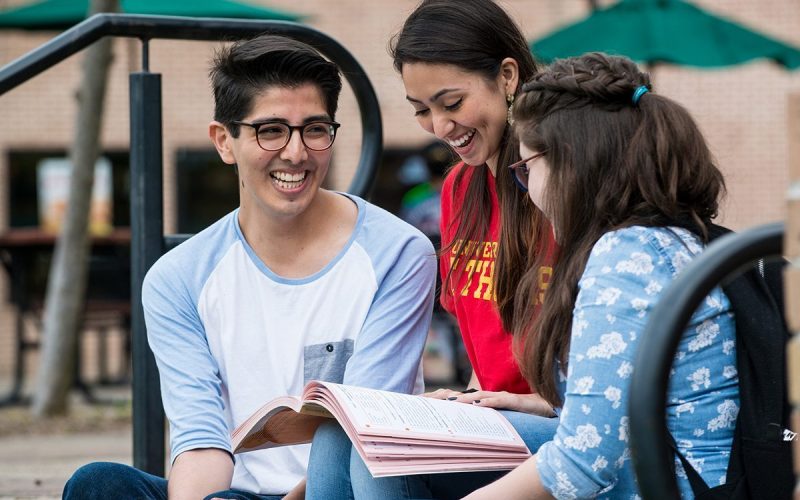College acceptance letter in hand, dreams of dorm life jumping around in your head – but wait! A tiny question pops up in your head. Just how old will you be when you start this exciting new chapter? How old is a freshman in college?
Freshman year is mostly all about new faces, challenging classes, and figuring out how to live (somewhat) independently.
But with all the excitement, there can also be a touch of nervousness, especially if you’re wondering how you’ll stack up against your classmates.
This article will answer all your questions about freshman age. We’ll break down the typical age range, help you understand why it might vary, and give you a clear picture of what to expect when you step onto campus.
Table of contents
- How Old Are Freshman In College?
- Can you be older than the average age and still be a Freshman in College?
- Are there age restrictions for entering college as a freshman?
- College Freshmen Age Across Different Countries
- Advantages and Challenges of Being an Older Freshman in College
- FAQs
- Conclusions
- References
- Recommendations
How Old Are Freshman In College?
College freshmen come in various ages, reflecting the diversity of students who embark on their higher education journey. While there is no specific age requirement to be a college freshman, most students begin their college experience right after completing high school, typically between 18 and 19.
However, it’s important to note that not all freshmen fall within this age range. Many non-traditional students have entered college recently, including those who have taken a gap year, pursued vocational training, or started higher education later in life.
These individuals may be older than the average freshman, bringing a unique perspective to the college community.
Read: How Old Are You When You Graduate College (College Survey)
Can you be older than the average age and still be a Freshman in College?
While the average age of freshmen tends to fall within the 18 to 19 range, it’s essential to understand that there is no age limit for starting college. Being older than the average age is quite common among non-traditional students who embark on their college journey later in life.
Colleges and universities recognize the value non-traditional students bring to the academic environment. As a result, many institutions have specific programs and resources designed to support older students starting college as freshmen.
These programs often offer flexible scheduling options, tailored support services, and a community of like-minded individuals who are also navigating the college experience at a later stage in life.
Being an older freshman has its advantages. These students often have a clearer sense of their goals and motivations, which can enhance their academic focus and drive.
They may also possess a strong work ethic, time management skills, and the ability to draw on their real-world experiences, all of which can contribute to their success in the classroom.
Are there age restrictions for entering college as a freshman?
Age restrictions are not commonly imposed on freshmen entering college. Unlike certain educational levels where age requirements exist, such as kindergarten or compulsory education, colleges and universities generally do not have specific age limits for freshmen. Instead, they focus on evaluating an applicant’s academic qualifications and readiness for higher education.
The primary criterion for admission as a college freshman is typically the completion of a high school education or its equivalent. As long as you meet the academic requirements and possess the necessary qualifications, your age should not hinder your college journey.
If you’re an older individual considering college, you’ll find that many institutions offer programs specifically tailored to adult learners’ needs.
These programs may provide flexible scheduling options, evening or weekend classes, online courses, and support services that cater to the unique challenges faced by individuals who must balance work, family, and other responsibilities while pursuing their education.
College admissions focuses primarily on assessing an applicant’s academic achievements, standardized test scores, essays, recommendation letters, and other factors demonstrating higher education readiness.
These criteria help colleges determine whether an applicant is ready to succeed academically and contribute to the community.
Also, see: What Happens if My 17-Year-Old Child Leaves Education in the UK?
College Freshmen Age Across Different Countries
The age of college freshmen can vary across different countries due to variations in educational systems, cultural norms, and individual circumstances.
In some countries, such as the United States, Canada, and Australia, college freshmen are commonly around 18 to 19 years old.
This aligns with the traditional path of students transitioning from high school directly into college or university. These countries typically have a K-12 education system, where students complete 12 years of primary and secondary education before entering higher education.
However, the age of college freshmen may differ in other countries. For example, college freshmen in certain European countries like the United Kingdom tend to be slightly older, usually between 19 and 20.
This can be due to differences in educational systems, where students often complete additional years of secondary education or take gap years before entering university.
In some countries, cultural factors also influence the age at which students enter college. For instance, in countries with mandatory military service, such as South Korea or Israel, students may enroll in college at a slightly older age after completing their military obligations.
Similarly, in some countries where students are to work or support their families before pursuing higher education, individuals may enter college at an older age.
The age of college freshmen can also vary depending on the type of institution or program. For instance, in vocational or technical colleges, where students acquire specialized skills, it is common to find individuals older than the average freshman. These students may have spent some time in the workforce or pursued vocational training before pursuing further education.
Also, see: Does The First Year Of University Count?
Advantages and Challenges of Being an Older Freshman in College
Being an older freshman in college brings benefits and challenges unique to individuals who have decided to pursue higher education later in life.
Advantages:
Life Experience
Older freshmen often bring a wealth of life experience to the college classroom. They likely faced challenges, developed problem-solving skills, and gained insights that helped class discussions and provided unique perspectives.
Motivation and Focus
Older students often clearly understand their goals and motivations for pursuing higher education. They are often more focused on their studies and may approach their coursework with more dedication and discipline.
Strong Work Ethic
Years spent in the workforce or fulfilling other responsibilities can instill a strong work ethic in older freshmen. They are accustomed to managing their time efficiently and meeting deadlines, which can contribute to their success in college.
Professional Network
Older freshmen may have established professional networks through their previous work experiences. These networks can be beneficial for internships, job opportunities, and mentorship during and after college.
Confidence and Maturity
Older freshmen often exhibit a higher level of confidence and maturity, which can aid in adapting to college life, engaging with professors, and forming relationships with classmates.
Also, see: 50 Best Skills to Learn Before College
Challenges:
Being an older freshman can present challenges in terms of social integration. Younger classmates may have different interests, lifestyles, and priorities. Building connections and finding common ground may require extra effort and patience.
Generation Gap
Older freshmen may experience a generation gap with their younger peers. Cultural references, technology familiarity, and communication styles may differ, creating occasional feelings of being out of touch or disconnected.
Balancing Responsibilities
Juggling multiple responsibilities can be challenging for older freshmen. Many have family commitments, part-time jobs, or financial burdens. Striking a balance between academics and other obligations can require careful planning and time management.
Returning to Academic Routine
After being away from formal education for some time, older freshmen may need time to readjust to the academic routine, study habits, and learning methodologies. Adapting to new technology and study techniques may also pose initial challenges.
Also, see: What exactly is College Readiness and Important is it?
Financial Considerations
Financing a college education as an older student can be a concern. Balancing tuition fees, living expenses, and other financial obligations may require strategic financial planning, seeking scholarships or grants, or considering part-time work opportunities.
While there may be challenges, older freshmen bring unique strengths and perspectives that can positively impact their college experience.
FAQs
Yes, older individuals, like any other college freshman, may be eligible for financial assistance through scholarships, grants, loans, or work-study programs.
Many colleges and universities offer programs and support services tailored to the needs of older college freshmen. These can include flexible scheduling options, evening or online classes, academic advising, career counseling, and resources specifically designed for adult learners.
By actively participating in campus activities, joining clubs or organizations, attending social events, seeking common interests, and initiating conversations to build relationships.
Yes, many colleges and universities offer resources and support services for older freshmen, such as academic advisors, counseling services, career centers, and programs tailored to the needs of non-traditional students.
Acceptance rates for older freshmen are typically based on academic qualifications and are comparable to those of younger applicants. Admission decisions depend on GPA, standardized test scores, recommendation letters, and other application components.
Conclusions
The age of college freshmen is not limited to a specific range, and individuals of varying ages can pursue higher education as freshmen. Whether you’re older than the average age or starting college later in life, it’s important to remember that there are no age restrictions when seeking knowledge and personal growth.
Embrace the diverse perspectives and experiences that students of all ages bring to the college community, and seize the opportunity to grow academically, professionally, and personally.
References
- quora.com – What is the normal age of college freshmen in the U. S.?
- reference.com – What Is the Average Age of a Freshman, Sophomore, Junior, and Senior?
- archive.dartmouthalumnimagazine.com – COLLEGE STUDENTS AND THE AVERAGE AGE




